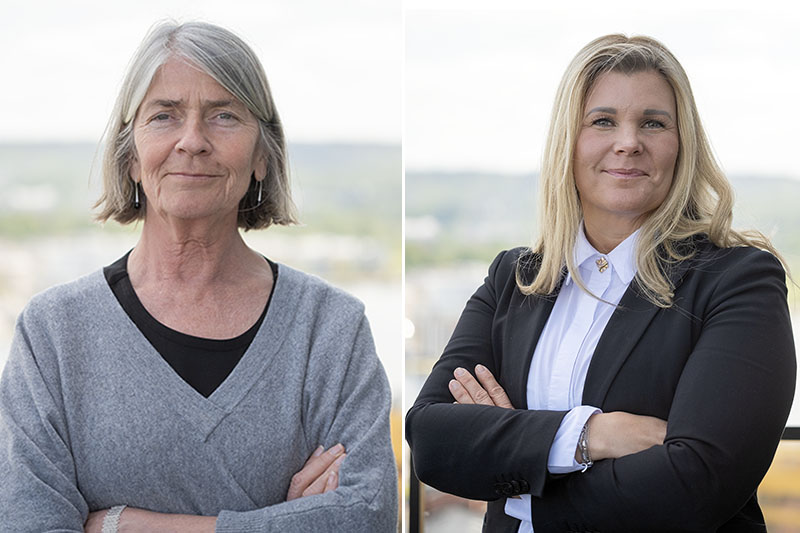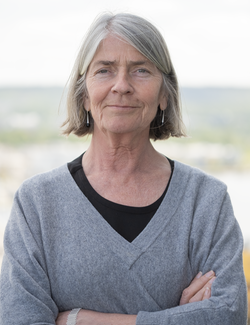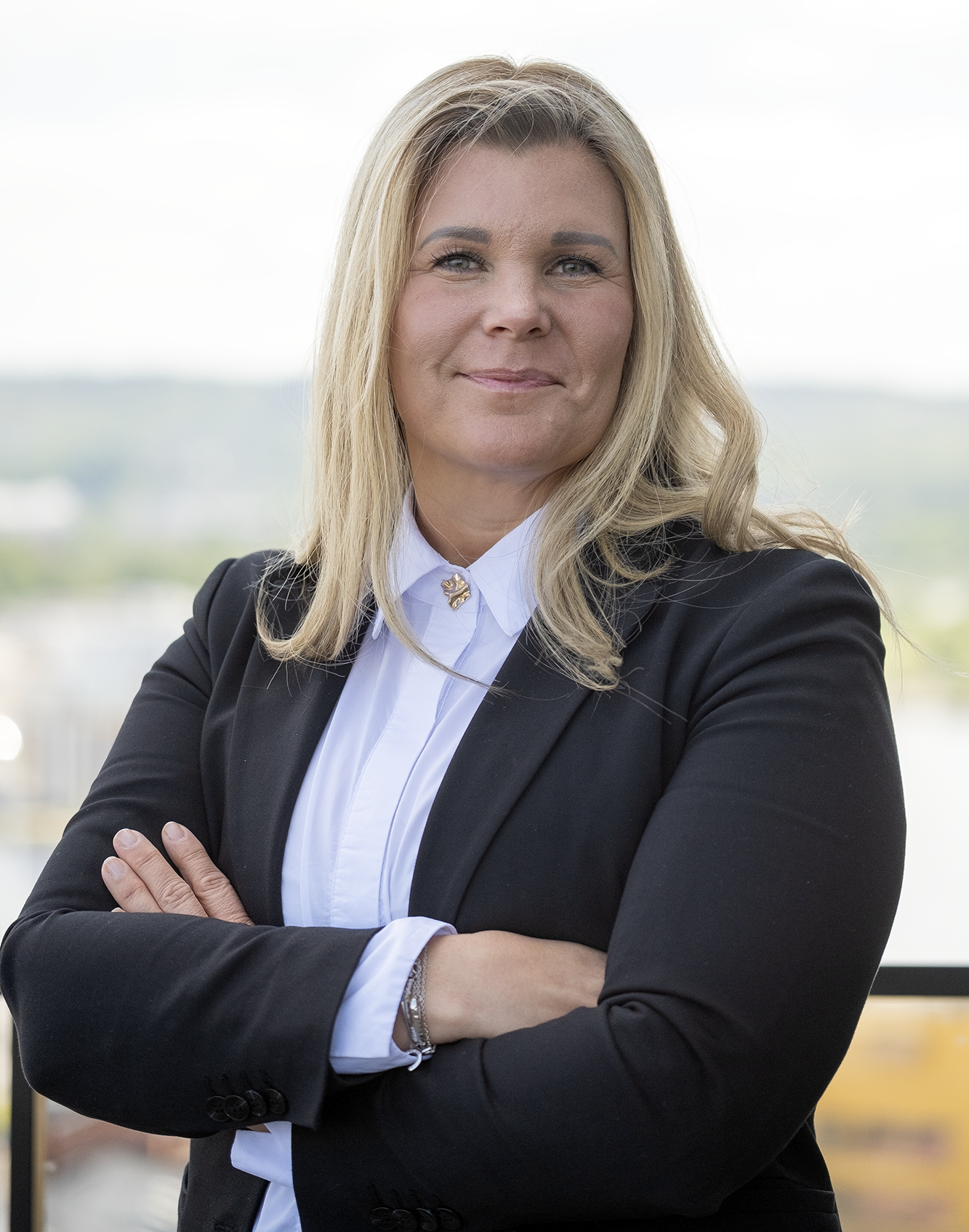New Board members share thoughts on JU and their new role

Lena Johansson and Karin Sandén Ahlqvist have recently joined the Foundation Governing Board of the Jönköping University (JU), which is JU's highest decision-making body. Read more about the new members, their thoughts on JU and the work carried out by the Board.
On 1 May, Lena Johansson and Karin Sandén Ahlqvist took up their positions as Board members of the Foundation Governing Board.

Lena Johansson
Questions for Lena Johansson
Lena has been Director General of the Swedish National Board of Trade, Secretary General of ICC Sweden (International Chamber of Commerce) and responsible for the EU budget at the Ministry of Finance. She is also a senior advisor to ICC Sweden, where she is also a member of the Trade and Investment Committee.
What made you interested in the board position?
I have always been interested in academic and analytical work that is beneficial, above all because it is so important for social development. JU's clear international profile makes the assignment particularly exciting, especially with its ambition to collaborate with the business community. I like the combination of the international profile with a regional and local character.
What do you hope to contribute to the board's work?
I believe I can contribute valuable economic insights to the board's work – especially from a socio-economic perspective. I think socio-economic aspects are of great importance to organizations that are involved in research and education, areas that are central to the economy.
I have also worked extensively with international issues from various perspectives and have, for example, great experience of EU issues. This, along with my background in the Government Offices and various government agencies, should also be useful.
What qualities do you think are important for a board member?
It may be obvious, but it bears repeating: you have to be well prepared, curious and interested. You are far removed from the day-to-day operations, so you have to read up and keep yourself thoroughly informed before meetings, as well as keeping up with developments in the field between meetings. It is also important to try to stay at a strategic and broad level, and though you might be curious, you need to avoid the details, even if they are interesting.
How can we strengthen cooperation between academia, business and politics?
Increased mutual understanding between academia, business and politics is important. This is something that is close to my heart and something I thought a lot about during my years at the Swedish Institute for Food and Agricultural Economics (SLI) in Lund, which was tasked with conducting socio-economic analyses of agriculture, food and fisheries that would be relevant and useful in political decision-making and in Sweden's EU work.

Karin Sandén Ahlqvist
Questions for Karin Sandén Ahlqvist
Karin has been CEO of Axelent AB Group since 2023, where she was previously marketing director. Before that, Karin has been both marketing manager and education manager Bufab Group. She also has a board assignment in the Jönköping County Chamber of Commerce and has held other board assignments in different associations.
What is your impression of JU?
I see JU as an ambitious and forward-looking university. I am impressed by the entrepreneurial thinking and the drive to move forward. There is a culture here that encourages innovation and the willingness to test ideas in practice.
What do you hope to contribute to the work of the board?
I want to contribute with perspectives from industry, particularly in relation to how we can strengthen the collaboration between JU and the business community. I want to provide insights into the challenges companies face, how we can create relevant programmes that meet the needs of the business community, and how we can build long-term partnerships. In addition, I hope to contribute to the board's discussions on internationalization, development and how we can leverage and strengthen JU's DNA and culture.
How does the board's work affect students?
The board sets the framework and direction that affects resources, priorities and initiatives. When the board works strategically and with a long-term perspective, we create the right conditions for students to receive a world-class education, to make relevant contacts with the business community and to study in an environment that provides the best possible preparation for the future.
How do you view the collaboration between academia and industry, and what role can JU play in this?
Collaboration is crucial; we need each other to drive innovation, develop the skills of the future and strengthen the region's competitiveness. JU can play a key role as a bridge, where research meets industry and where students gain relevant experience that makes them attractive on the labour market.
Which initiatives or projects within JU are you most interested in supporting or developing?
What appeals to me most is how JU can act as a driving force for our region's development, both by attracting and retaining talent in the region and by supporting local industry in its transition. I would like to contribute to initiatives that build bridges between JU, small and medium-sized enterprises as well as regional industry, so that together we can strengthen our competitiveness and build the future labour market in our region. One project and collaboration that I value highly is JU Solar Team, or the solar car, that Axelent has been the main sponsor of for the last three years. Just like us, they believe in combining theory and practice in order to push development forward. Through our collaboration we also gain energy and new perspectives in our own business operations. A win-win for all parties!
Read more about the Foundation Board and the other Board members
